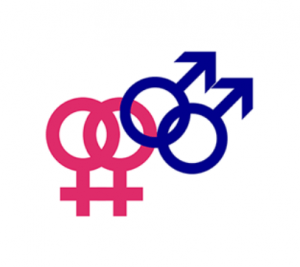UN experts say Ghana anti-LGBTQI draft bill is ‘recipe for violence’
 United Nations human rights experts have called on the Ghanaian government to reject the proposed ‘family values’ bill currently before Parliament because it seeks to establish a system of State-sponsored discrimination and violence against the LGBTQI community. The first reading of the bill was done on August 2, 2021. Consideration of the bill is expected to be done in October 2021.
United Nations human rights experts have called on the Ghanaian government to reject the proposed ‘family values’ bill currently before Parliament because it seeks to establish a system of State-sponsored discrimination and violence against the LGBTQI community. The first reading of the bill was done on August 2, 2021. Consideration of the bill is expected to be done in October 2021.
In a press release copied to ghanabusinessnews.com, the independent experts, appointed by the Human Rights Council, presented an analysis of the draft bill to the Ghana government, concluding that adopting the legislation in its current or any partial form would be tantamount to a violation of a number of human rights standards, including the absolute prohibition of torture.
The experts describe the draft legislation which argues that any person who deviates from an arbitrary standard of sexual orientation or gender identity is immediately to be considered dangerous, sick or anti-social, as a textbook example of discrimination.
“The proposed law promotes deeply harmful practices that amount to ill-treatment and are conducive to torture, such as so-called ‘conversion therapy’ and other heinous violations like unnecessary medical procedures on intersex children, and so-called corrective rape for women,” they added.
The experts argue further that for example, attempts to prevent human rights defenders from organising themselves to defend LGBTI people, and the absolute prohibition of public debate on sexual orientation and gender identity, raises grave concerns about rights to freedom of opinion and expression, and of association.
“Moreover, the bill in question would essentially legitimize the above instances of violence against LGBTI women and reinforce existing gender stereotypes and discrimination against women, which are both cause and consequence of violence against women and girls,” they said, adding that, “the consideration of this legislation is deeply perplexing in a country that has been regarded as a champion of democracy in Africa, with an impressive record of achieving certain Millennium Development Goals (MDGs) by 2015.”
The experts also cited specific concerns about the MDGs on health, education, employment, housing and gender justice.
“The draft legislation appears to be the result of a deep loathing toward the LGBTI community. It will not only criminalise LGBTQI people, but anyone who supports their human rights, shows sympathy to them or is even remotely associated with them.
“Given that LGBTQI people are present in every family and every community it is not very difficult to imagine how, if it were to be adopted, this legislation could create a recipe for conflict and violence,” they noted.
The bill, titled, “The Promotion of Proper Human Sexual Rights and Ghanaian Family Values Bill, 2021”, has already been criticized by human rights activists and organisations in Ghana, but has received strong support from mostly religious groups and organisations.
The promoters of the bill say they are seeking to strengthen and augment the country’s existing laws that criminalize consensual “unnatural carnal knowledge” with people over the age of 16 years under section 104 of the Criminal Offences Act, 1960 (Act 29) as amended by Act 646 of 2003.
If the bill is passed into law, people who engage in what it describes as homosexual activities could be fined or go to jail for between three to five years. The law would also make it a criminal offence for any person to identify as lesbian, gay, transgender, transsexual, queer, pansexual or non-binary (LGBTQ+) and would be punishable by five years in prison.
The law would also criminalise advocating for LGBTQI+ rights, and activists would be sent to jail for five to ten years.
UN experts including the Special Rapporteurs, Independent Experts and Working Groups are part of what is known as the Special Procedures of the Human Rights Council.
By Emmanuel K. Dogbevi
Copyright ©2021 by NewsBridge Africa
All rights reserved. This article or any portion thereof may not be reproduced or used in any manner whatsoever without the express written permission of the publisher except for the use of brief quotations in reviews.
